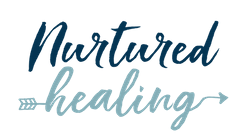We have all heard about taking a deep breath when we are feeling stressed. It’s true that deepening your breath into fuller, belly breaths can help activate a calming response but being told to “take a deep breath” when you are stressed can be downright annoying.
Understanding that stress shifts your breathing helps us recognize that you can use breathing or the area of your nose to shift stress. Breathing bypasses the stressful thoughts swirling around in your head and impacts the body directly.
When stress strikes your breathing quickens into shallow, upper chest breaths. Slowing your breath and bringing it lower into the lungs can cause a cascade of physical changes in the body that create relaxation. While there are many strategies to share here, I want to focus on three simple practices that can really be impactful.
Breathe Through Your Nose
The first is to simply breathe through your nose. In his book, Breath: The New Science of a Lost Art, author James Nestor details why it’s so important to breathe through your nose.
Breathing through your nose actually affects your physiology.
Extend your Exhale
This is a simple technique that can have a big impact on your stress level. If you inhale for a count of 4, then exhale for a count of 8 or another that is comfortable for you. The key here is to exhale longer than you inhale. Your heart rate will in turn slow down and help increase your heart rate variability (HRV) and activate a sense of calm in your body.
Counting
Counting your breaths also helps you slow your breathing. Begin counting one on your inhale, two on your exhale, three on your inhale, four on your exhale. Continue until you get to ten and then start back at one. Another variation on this is number and color breathing. So on your inhale you would silently think of a number and on your exhale you would silently think of a color. This practice combines task orientation with breathing to quickly shift the stress response.
The Shift
With any of these tools, you may notice a spontaneous shift in your nervous system that could come in the form of a deep breath, yawn, sigh, or a settling. Your body will have its own sign to alert you to a shift and it could be different depending on the day/time. The key is to pay attention. Which tool will you try on for size?







